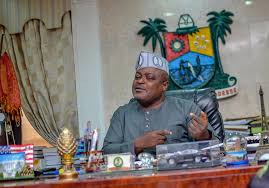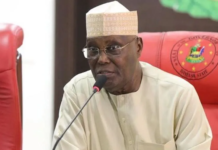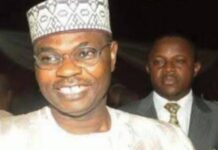The Speaker of the Lagos State House of Assembly, Rt. Hon. Mudashiru Obasa, along with former Lagos State Governor, Babatunde Raji Fashola, foreign diplomats, and business experts, have issued a collective appeal to all citizens to safeguard the democracy of the country.
This call was made at an event organized by the State Assembly to commemorate the uninterrupted 25 years of democratic governance in Nigeria.

During the event, they emphasized that democracy has proven to be beneficial for Nigeria since its inception in 1999, marking the beginning of the country’s fourth republic.
Prominent figures such as Prof. Eghosa Osaghae from the Nigerian Institute of International Affairs, Dr. Muda Yusuf, former chairman of the Lagos Chamber of Commerce, and Mrs. Abike Dabiri-Erewa, the Nigerians in Diaspora Commission (NiDCOM), also expressed their views on the importance of protecting democracy.
Speaker Obasa highlighted that Nigeria has every reason to celebrate, as over the past 25 years, the country has successfully witnessed the peaceful transition of power from one administration to another, while upholding the principles of representation, accountability, and the rule of law.
He stated, “Our democracy has endured through challenges and setbacks. We have experienced elections, protests, and debates, yet our commitment to democracy has remained steadfast. We have shown that democracy is not a destination but a journey, and we take great pride in being on this path. It is imperative that we continue to safeguard it vigilantly, as it forms the very foundation upon which our nation’s progress is built.”
Furthermore, Speaker Obasa acknowledged the significant roles played by the state legislature in Nigeria’s progress, including the promotion of good governance, accountability, and the rule of law, as well as the passage of transformative laws that have positively impacted the lives of citizens.
“As a transformative and people-centric legislature, the House of Assembly has enacted impactful legislation, facilitated justice reforms, improved social welfare and security systems, driven tax reforms, and spearheaded infrastructural development and transportation improvements. These achievements have garnered attention from both local and international observers, leading to frequent visits from international representatives and private individuals seeking to learn from our experiences, exchange ideas, conduct research, or participate in exchange programs,” the Speaker remarked.
He urged Nigerians to continue supporting their respective State Houses of Assembly in order to further deepen democratic values and ensure governance is brought closer to the grassroots level.
Former Governor Fashola, reflecting on the past 25 years of democracy, emphasized that it has provided a platform for effective representation and the freedom to enact laws. He urged Nigerians to cherish democracy and stressed the importance of the federal system practiced in Nigeria, noting that it has played a crucial role in the country’s growth.
Acknowledging the challenges that come with democracy, Fashola stated, “For those who may be understandably impatient with the democratic process, I hear you. It can be a laborious way to govern. However, there is no better alternative to organize our affairs. I would not trade the freedoms it offers for anything else.”
He further explained the necessity of the federal system in Nigeria, highlighting the existence of multi-level legislative houses and judicial systems, as well as the different levels of government responsible for various aspects of governance. Fashola emphasized the significance of the residual authority residing in the states, which allows them to address specific issues that do not fall within the exclusive or concurrent lists.
Fashola also recalled notable changes that have occurred in Nigeria over the past 25 years, such as the resolution of the “famous resource control case” originating from Lagos, which has led to states enjoying better financial benefits. He also mentioned the matter relating to local government creation during the administration of Asiwaju Tinubu as governor.
Expressing optimism for the future, Fashola urged support for President Tinubu’s administration, expressing his belief that issues such as wages and salaries and the creation of state police will soon be addressed.
In his congratulatory message, the Consul General of the French embassy in Lagos, Laurent Favier, emphasized that democracy is not a state of perfection but a continuous endeavor that requires constant vigilance. He commended Nigeria for ensuring freedom through its democratic system and urged the country to persist in prioritizing the well-being of its citizens.
Similarly, Consul General Weert Börner of Germany highlighted the similarities between his country’s federal system, consisting of 16 states, and Nigeria’s. He emphasized that this system fosters healthy competition and allows for the freedom of opinions, a fundamental characteristic of democracy.
Börner also praised Nigeria’s Electricity Act, which grants states the power to generate electricity, citing Germany’s similar path taken 25 years ago, which resulted in the emergence of approximately two million electricity producers in the country.




